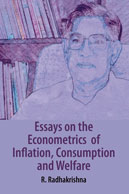New Releases...
Download Catalogue...
Download Excel Data
Download PDF Catalogue
You will get a Excel file with detail about catalogue.
You will get PDF file with detail about catalogue.
Detailed info...
Beyond the Transition Phase of WTO
An Indian Perspective on Emerging Issues
Dipankar Sengupta‚ Debashis Chakraborty‚ Pritam Banerjee (Eds.)
About the Book
<p>In a volume aimed at all social scientists, economists and lawyers come together in Beyond the Transitional Phase of the WTO : An Indian Perspective on Emerging Issues to discuss topics ranging from the International Trade in Services including Telecommunications, Transport, Education and E-commerce to questions of compatibility between Obligations towards Environmental Protection and Social Concerns codified in international treaties and protocols and an International Trade Regime that promotes free trade. The contributors discuss current problems that affect India's agriculture like SPS-TBT, and Agricultural Subsidies as well as the issue of Seed Protection and Genetically Modified Crops.</p>
<p> </p>
<p><br />
The volume also looks at problems and prospects of Indian industry in the face of the MFA phase-out and TRIPS. This projective volume not only projects future problems that will rise as India enters into an increasing number of Regional Trading Arrangements but also grapples with legal problems like India's experiences where Dispute Resolution at the WTO are concerned. The volume concludes with a discussion on the Singapore Issues like Trade Facilitation, Government Procurement and Competition Policy. The volume not only discusses the importance of these issues to India as well as the current ‘state of play’ but suggests the appropriate positions for India to take on all these issues at the WTO negotiations and other fora if a Global Agreement on an issue is not probable.</p>
<p> </p>
<p>"This is a book dealing with all the issues concerning the place of India inside the WTO. In spite of complex and technical matters the authors have succeeded in producing a clear synthesis on all sectors. Of great interest is the historical perspective highlighting the changing views of India along the years, from defensive to more proactive and offensive strategies."<br />
<strong>— Professor Frederic Landy</strong><br />
University of Paris X</p>
<p> </p>
<p><br />
"With the DDA (Doha Development Agenda) picking up steam, the WTO is even more topical and this is a comprehensive looking-forward, rather than looking-back, book. Almost every issue one can think of is covered, and there is a strong India perspective. The editors and the publisher should be complimented for putting such a volume together and the book retains topicality well after the Hong Kong Ministerial."<br />
<strong>— Prof. Bibek Debroy</strong><br />
Director, Rajiv Gandhi Institute for<br />
Contemporary Studies (RGICS), New Delhi</p>
<p> </p>
<p><br />
The book "is unique in many ways. It is possibly the most comprehensive volume that views (from an Indian viewpoint) those issues that affect trade as well as the regime that governs international trade the final shape of which is yet to be decided. The volume looks beyond Hong Kong. In that sense this volume stands out. The range of issues covered and the manner in which they are done make them accessible to non-specialists but their projective nature and the fact that many of the topics covered are new ensure that they are of great interest to researchers and policy makers."<br />
<strong>— Prof. Manoj Pant</strong><br />
Centre of International Trade and<br />
Development, J.N.U., New Del</p>
About the Author(s) / Editor(s)
<p><strong>Dipankar Sengupta</strong> is Fellow (Economics) at the Centre de Sciences Humaines, New Delhi. Prior to this, he taught economics at the School of International Studies, Jawaharlal Nehru University, New Delhi. He was educated at the University of Calcutta and at the Centre for International Trade and Development, Jawaharlal Nehru University and his areas of interest include International Political Economy, Industrial Organisation Theory and Indian Economic Development and has published extensively on these subjects.</p>
<p> </p>
<p><strong>Debashis Chakraborty</strong> is Research Associate at the Rajiv Gandhi Institute for Contemporary Studies, New Delhi. He was educated at the University of Calcutta and at the Centre for International Trade and Development, Jawaharlal Nehru University and his areas of interest include International Trade, the interface between Law and Economics and Indian Economic Development. He has presented and published papers at various academic and policy forums in India and abroad.</p>
<p> </p>
<p><strong>Pritam Banerjee</strong> was formerly a Trade Policy analyst with the Confederation of Indian Industry. He has also been with the World Bank as a consultant in Washington DC. He was educated at Illinois Wesleyan University, London School of Economics and the Centre for International Trade and Development, Jawaharlal Nehru University, New Delhi. His primary interests include GATS, International Services Supply Chains and Trade Facilitation in Services</p>
Contributors
<p> </p>
<p><strong>Alice Pham </strong>is Researcher at Consumer Unity and Trust Society (CUTS) International, Jaipur.</p>
<p> </p>
<p><br />
<strong>Amir Ullah Khan</strong> is Fellow at the India Development Foundation, Gurgaon.</p>
<p> </p>
<p><br />
<strong>Anirudh Singhal</strong> is Consultant with the World Bank, Washington D.C.</p>
<p> </p>
<p><br />
<strong>Debashis Chakraborty</strong> is Research Associate at the RGICS, New Delhi.</p>
<p> </p>
<p><br />
<strong>Dipankar Sengupta </strong>is Economics Fellow, Centre de Science Humanines, New Delhi.</p>
<p> </p>
<p><br />
<strong>Els Reyner i</strong>s Legal Adviser in M.V. Kini & Co, New Delhi.</p>
<p> </p>
<p><br />
<strong>Julien Chaisse </strong>is affiliated to the Institut d’Etudes Politiques d’Aix-en-Provence, University of Aix-Marseille III as a teacher and a researcher.</p>
<p> </p>
<p><br />
<strong>K.D. Raju</strong> is Assistant Director, Amity Institute of Global Legal Education and Research, New Delhi.</p>
<p> </p>
<p><br />
<strong>Mayank Sinha</strong> is Research Associate, Global Agreements, Legislation and Trade (GALT), The Energy Research Institute (TERI), New Delhi.</p>
<p> </p>
<p><br />
<strong>Nilanjan Banik </strong>is Assistant Professor, Madras School of Economics, Chennai.</p>
<p> </p>
<p><br />
<strong>Nitya Nand </strong>is Policy Analysist at CUTS International, Jaipur.</p>
<p> </p>
<p><br />
<strong>Nivedita Dutta, </strong>formerly Research Associate at TERI is enrolled in the Ph.D. Economics programmeme in the Indian Institute of Technology, Mumbai.</p>
<p> </p>
<p><br />
<strong>Pavel Chakravarty</strong> is Research Associate, GALT, TERI, New Delhi.</p>
<p> </p>
<p><br />
<strong>Pradeep Mehta</strong> is the Sectretary-General of CUTS International, Jaipur.</p>
<p> </p>
<p><br />
<strong>Pritam Banerjee</strong>, formerly Trade Analyst with the Confederation of Indian Industry is in the Ph.D. programmeme of Department of Public Policy, George Mason University, Washington D.C.</p>
<p> </p>
<p><br />
<strong>Sachin Chaturvedi </strong>is Fellow, Research and Information System for the Non-Aligned and Other Developing Countries (RIS) and Managing Editor, Asian Biotechnology and Development Review, New Delhi.</p>
<p> </p>
<p><br />
<strong>Sandwip Kumar Das</strong> is Professor at the International Trade and Development Division, JNU, New Delhi.</p>
<p> </p>
<p><br />
<strong>Saon Ray </strong>is Assistant Professor at TERI School, New Delhi.</p>
<p> </p>
<p><br />
<strong>Saurabh Bandopadhyay</strong> is Economist at the National Council of Applied Economic Research (NCAER), New Delhi.</p>
<p> </p>
<p><br />
<strong>Subhodip Ghosh</strong> is an Economist at Bengal Chamber of Commerce and Industry, Kolkata.</p>
<p> </p>
<p><br />
<strong>Suparna Karmakar </strong>is Consultant at the Indian Council for Research in International Economic Relations, New Delhi.</p>
<p> </p>
<p><br />
<strong>Swapan Bhattacharya</strong> is Associate Professor, Indian Institute of Public Administration, New Delhi.</p>
<p> </p>
<p><br />
<strong>S.R. Rao </strong>is Director, Department of Biotechnology, Ministry of Science & Technology, New Delhi.</p>
<p> </p>
<p><br />
<strong>Toposhmito Sengupta</strong> is Research Associate at NCAER, New Delhi.</p>
<p> </p>
<p><br />
<strong>Upasana Gaur </strong>is a Research Associate, GALT, TERI, New Delhi.</p>
<p> </p>
<p><strong>Yashika Singh</strong> is Leader, Economic Analysis Group, Dun and Bradstreet Information Services India Pvt. Ltd., Mumbai.</p>
Print Brochure...
Print as it is
Customised brochure
You will get a printout of what you see on your screen under 'Detailed Info'(Uneditable).
You will have the opportunity to edit the text and adjust the extent to fit on A4 size sheet or more accordingly as you desire. Plus, you can download the edited/customised Brochure or simply print it (CTRL + P).


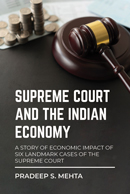



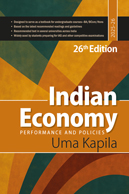
-web-194.jpg)
-front.jpg)
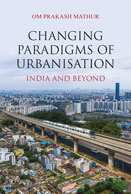






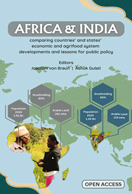
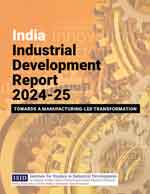
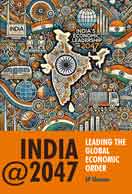
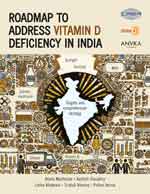
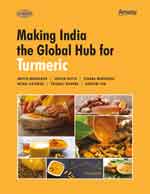
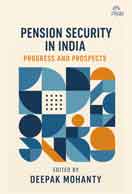
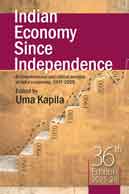
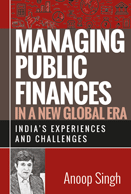
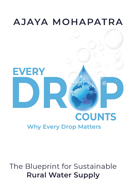
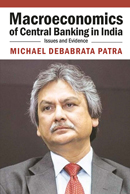
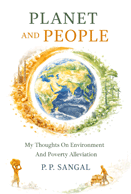
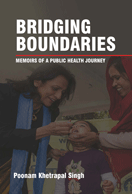

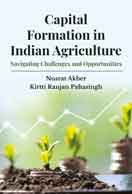



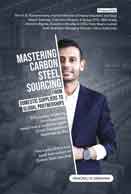







-COVER-web-194.jpg)





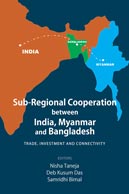






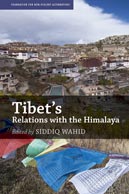



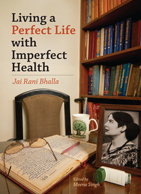












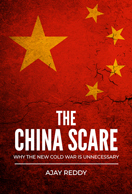
.jpg)






